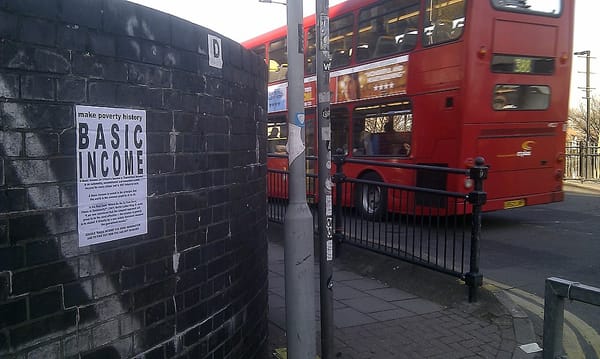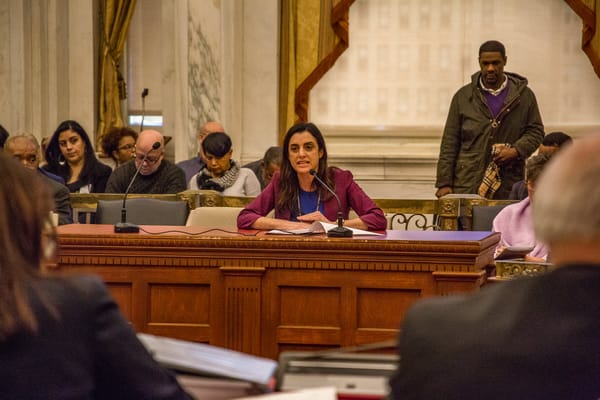Against Activist Mission Creep
When organizations take positions on issues beyond their remit, they make it harder to build big tents around their own issues.

Recently, Planned Parenthood released a statement on the Oct. 7th attacks and the broader conflict between Israel and Palestine. Their statement condemned Hamas’s attacks on civilians, and specifically condemned sexual assaults committed against Israeli women during the violence. They also noted how thousands of Palestinian women and children had been killed in Israel’s counteroffensive, stated the need for Palestinian women to maintain access to reproductive and maternal healthcare, and condemned both anti-Semitism and Islamophobia.
The social media reaction to such a balanced and empathetic statement? Furious, unrelenting anger.
The statement was quote-tweeted thousands of times by social media users outraged by the statement. Planned Parenthood was accused of spreading Israeli propaganda, ignoring Palestinian deaths and fabricating rape claims, and enabling genocide. These outraged users aren’t conservatives who always oppose Planned Parenthood—they’re progressives furious that an organization they normally support put out a statement they hated. Now there are calls to end donations and Planned Parenthood staffers are fighting with donors. Their own employees, affiliates and organizers are making public statements against them.
This outcome was predictable to anyone with even a cursory knowledge of social media dynamics. And it raises an obvious question—why release a statement at all?
Metastatic social justice
It’s actually quite common for organizations and activists to get into hot water these days by addressing areas outside their expertise. Trans activists in Vancouver loudly insisted there can be no Trans Liberation without Palestinian Liberation, which caused pushback all over Canada. Two years ago, New York City’s Pride organizations courted controversy by excluding LGBT police officers from the city’s Pride parade in the name of racial justice. There are YIMBY housing organizations taking a stand on abortion rights and climate organizations demanding a Federal Job Guarantee.
There’s a common theme here. Organizations that appear to be single-issue advocacy groups are increasingly commenting and taking stances on issues outside of their narrow focus. Activism is becoming more global in nature—if you are an activist for one cause, you’re expected to speak up about all causes now. It’s not enough to ‘stay in your lane’, you need to be protesting and advocating for all forms of social justice. Pro-choice advocacy is now part of your racial justice non-profit. Jobs packages are in your environmental bills. Your LGBT organization has a stance on ‘Defund The Police’ and your housing group has a stance on Israel/Palestine. Social justice is metastasizing.
This phenomenon has happened on the right as well—see the NRA transitioning from being a somewhat non-partisan group to essentially being an arm of the GOP—but it’s especially striking in the current progressive movement. There’s a real sense in which NYC Pride is no longer an LGBT advocacy organization, but rather an overall progressive social justice organization. That may sound like an exaggeration, but they kicked out a gay organization (the Gay Officers Action League) to accommodate another form of social justice. It’s the internal logic behind a LGBT Pride march excluding LGBT people.
This also explains the online fury at Planned Parenthood. Their statement was thoughtful and balanced, but deviated from the dominant and overwhelmingly pro-Palestinian progressive narrative. Their donors expect them to advocate not just for progressive goals in women’s health, but progressive goals everywhere.
This type of activist mission creep risks stunting the progress on the core issues that social justice advocates care about.
The downsides of missions creep
The urge towards mission creep comes from a reasonable place. If you care so deeply that you spend your free time (or your career!) as an activist for a particular issue, the odds are that you also have strong feelings on many other issues. You’re also likely to live in a bubble of activists and people who think like you, and so your conversations professionally and socially may often center around all sorts of political issues. But as an activist it’s important to remember that most people you’re trying to reach are not like you and don’t think like you.
The typical voter is over 50 and does not have a college degree. They also don’t think about politics all that much. They are far, far away from the mindset of a typical activist. And when they do have political opinions, those opinions are far more varied and haphazard than a committed political partisan would guess. I think a few minutes scrolling the twitter feed of the American Voter Bot is invaluable to understand how voters think. This bot takes real voters and profiles them in brief tweets. While some look as expected—a Democrat who supports gun control, for instance—many look like this:
Most people are a confusing mix of demographic signals, issue positions and partisan identification, and they rarely fit squarely within one political tribe. That’s the danger of turning a single-issue advocacy group into a generalized progressive messaging group—you’ll end up alienating a far wider group of potential allies than you realize.
If Issue Group X declares loud progressive positions not just on Issue X but also on gun control, abortion, Palestine, Medicare For All, trans rights, free trade and school prayer, they won’t attract a large diverse group of people who care about Issue X. They’ll end up attracting a narrow slice of progressive activists who are ideologically pristine enough to agree with them on every issue.
The ultimate result of activist mission creep is that your issue ceases to be something that people across the ideological spectrum can work together on. It becomes coded as a red tribe vs blue tribe issue, gets swallowed by the general culture war, and progress grinds to a halt as partisan warfare starts.
The most likely outcome of Planned Parenthood voicing an opinion on the Israeli/Palestinian conflict is not that they make any difference at all towards that conflict. It’s that they alienate their own supporters with differing views on Israel/Palestine. They’ve undercut their own ability to make progress on reproductive care and reproductive rights for no gain.
One thing at a time
None of this is to say that individuals shouldn’t care about many issues at once—they obviously should. And general purpose ideological organizations can and should tackle many policy areas. But it’s a poor strategy for single-issue groups to try to become general purpose organizations. There are real benefits to staying in your lane.
One example of a movement that has done a reasonable job at this is the pro-housing YIMBY movement. While there are some instances of YIMBY groups straying from their purpose, for the most part they’ve done a good job staying narrowly focused, and that that focus has allowed them great success.
YIMBYism is a far more ideologically diverse movement than many people realize. There are conservative YIMBYs, neoliberal YIMBYs, Democratic YIMBYs, libertarian YIMBYs, and many left or socialist YIMBYs (although in true socialist tradition, some want to break away from the YIMBY label and create a sub-label PHIMBY). This isn’t just a feel good story about how conservatives and liberals can be friends—this has a real impact on YIMBYs getting things done. It’s part of why you see both Republican and Democratic officials at the local level working towards YIMBY solutions in different cities, and why those solutions can often pass without bitter partisan warfare. It’s why the YIMBY Act in Congress had Republican and Democratic co-sponsors. It’s why YIMBYs are scoring victories in blue states like California and red states like Montana.
This sort of thing matters. YIMBYs are a big tent and they’re getting things done. It’s hard enough to make real change happen on a single policy or a single issue. Whole movements try for years and still sometimes fail. Single-issue groups trying to address every issue at once aren’t going to succeed. The urge towards mission creep is strong, and too many groups are weakening their core strengths to address problems they can’t solve. Single-issue organizations shouldn’t burden themselves with having the answer to every question, with having a stance on every issue, and with having to be all things to all people. It’s ok not to comment. It’s ok to stay in your lane and just work on one problem. It’s ok to try to change the world just one issue at a time.
Featured image is Dance, by Henri Matisse




